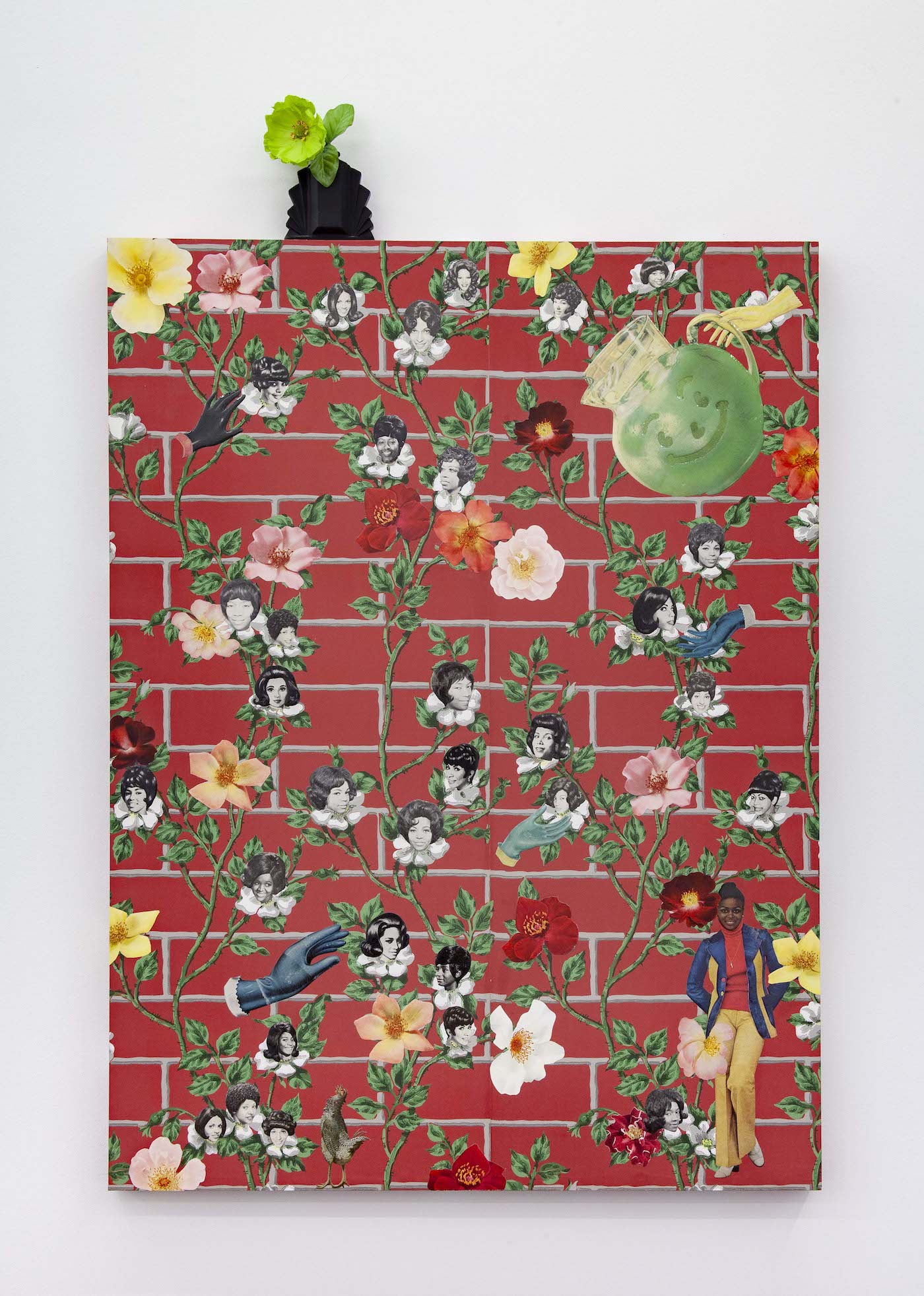Republican, Fear, Love, Blood: The Many Meanings of Red
Elephant
2019-04-29

In Full Bloom, 2019. Courtesy the artist and Monique Meloche Gallery, Chicago |
Genevieve Gaignard is invested in examining the cultural divide between being black and white in the US, navigating a place for all the incremental shades that exist in between. Her latest work brings identities, experiences, appearances and materials together in symbolic shades of black, white and red. Words by Charlotte Jansen
When I first saw Genevieve Gaignard‘s work, staged photographs she shot of herself in 2017, fresh out of Yale, I immediately identified. As biracial woman like Gaignard, my experiences growing up, too white within my family, too brown in my majority white school, I could relate to the pain of being projected onto, and never quite fitting in. Yet my experiences are quite different to hers, growing up in the south of the US, half black, half white, with red hair; listening to Billy Stewart and watching John Waters films. Music and drag have been major influences on her work, as well as her sense of family and femininity. America has always been louder, brasher and more confident than the UK when it comes to exploring race, for the good and the bad…
…Can you tell me what your own relationship with magazines like Jet and Ebony has been?
I remember we had Jet and Ebony delivered to our house when I was growing up. My mother also held onto a lot of those magazines and had her own archive from years prior. Although I work with other magazines as well, such as Life, Women’s Day and McCall’s, it should be acknowledged that in those magazines, especially from the sixties and earlier, black people were not represented at all! It’s quite shocking to flip through an entire magazine from the forties or fifties and not see a single person of colour. It’s disturbing how white America refused to acknowledge an entire race of people. If black folks were present in all the magazines marketed to “Americans”, then I wouldn’t have had to make a point that I also source cut-outs from Jet and Ebony. My works aim to reflect a more inclusive view because that’s more like real life…
Read the entire interview here.







